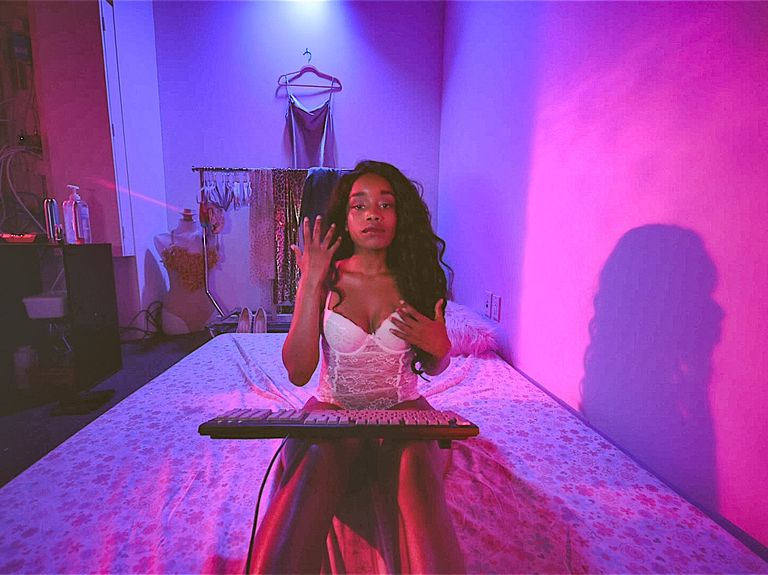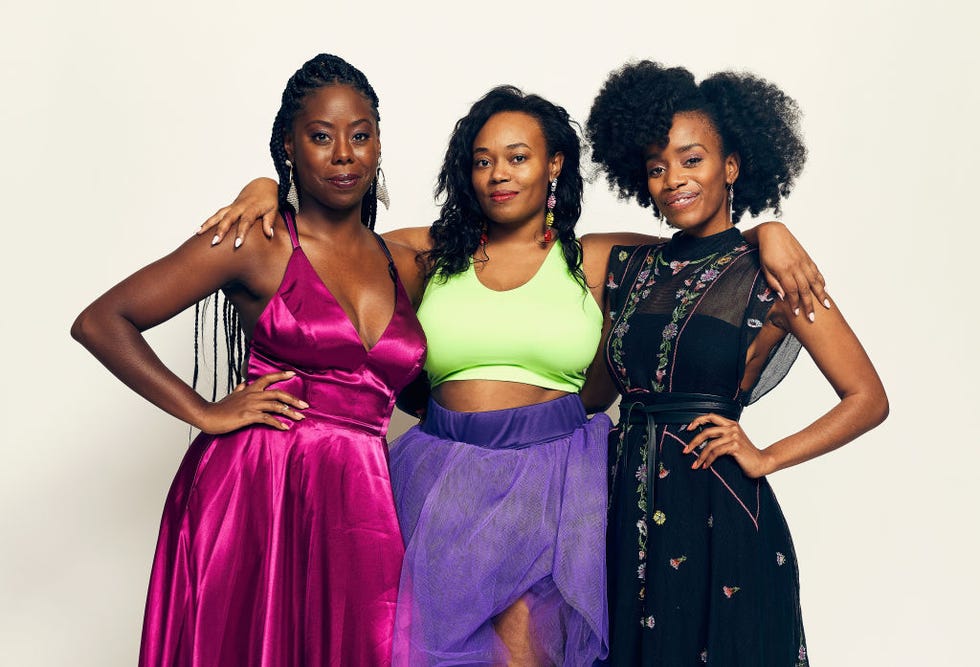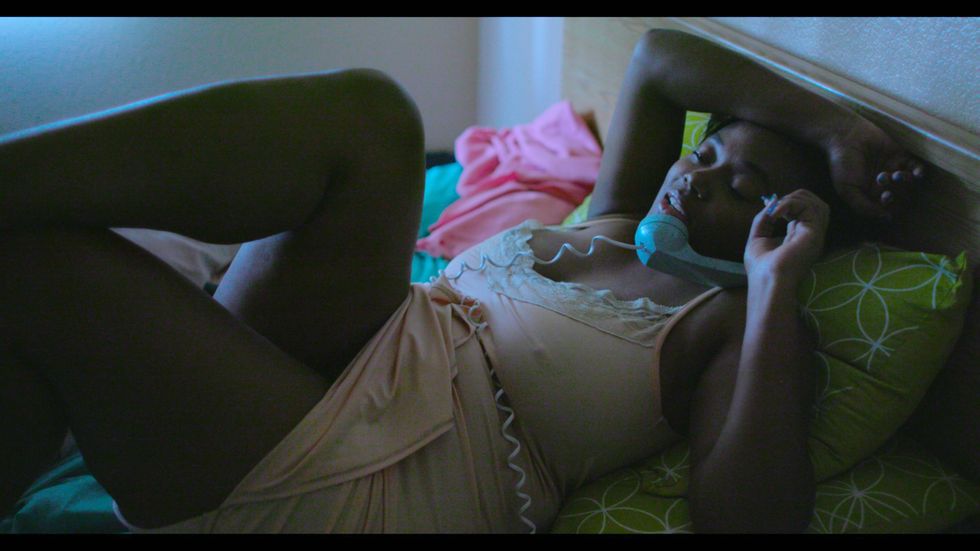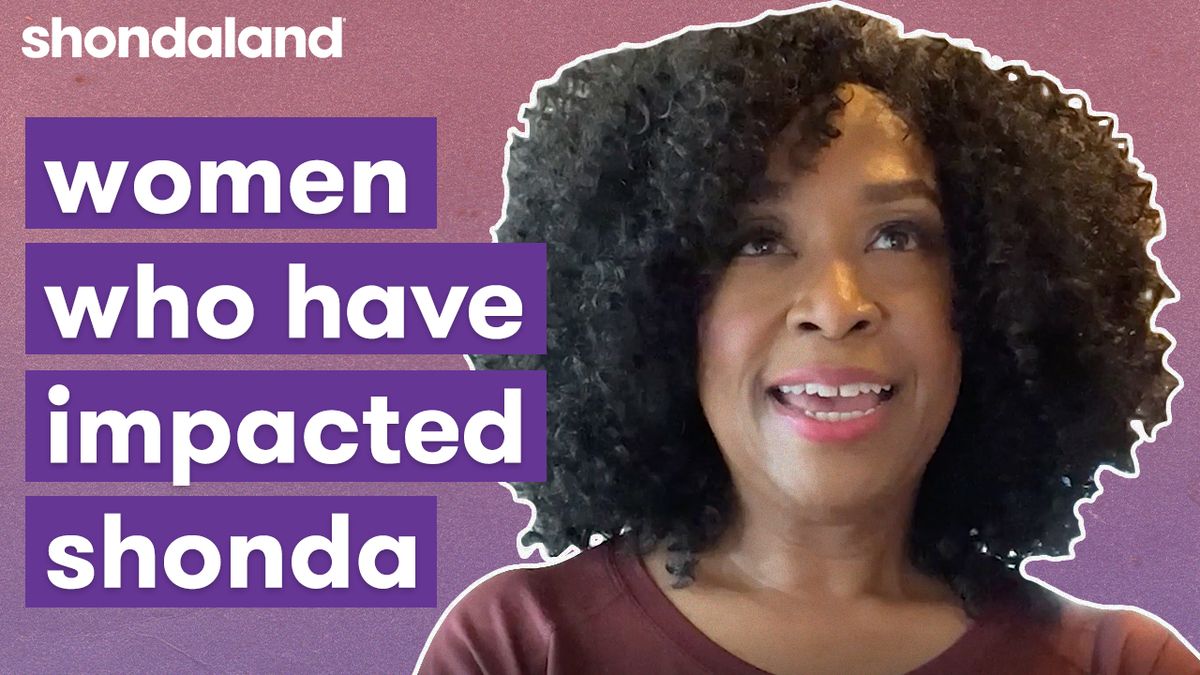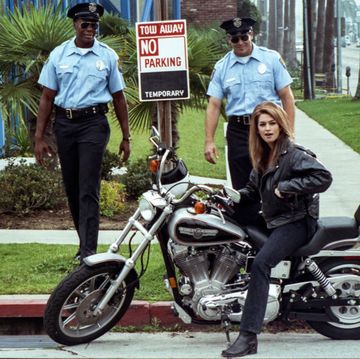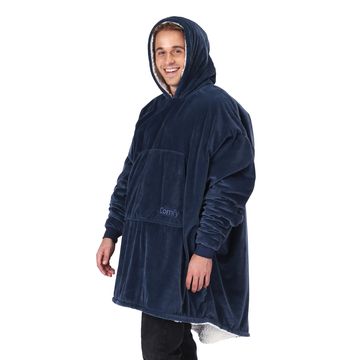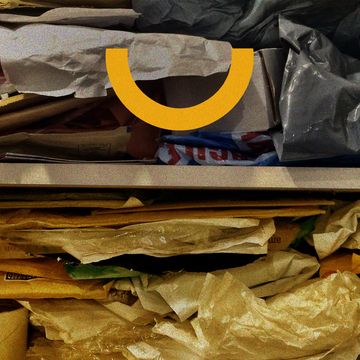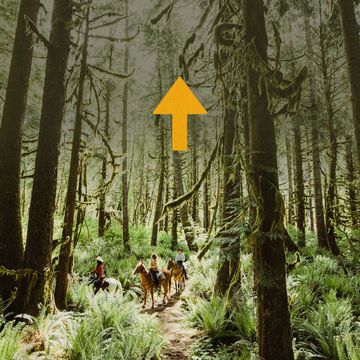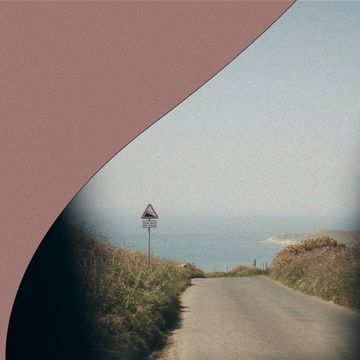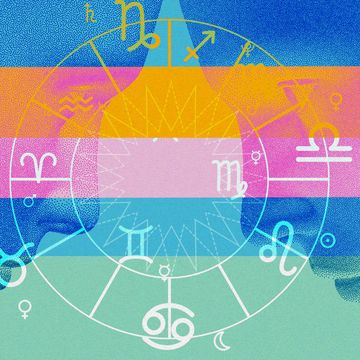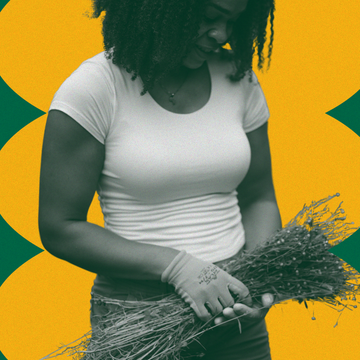Sex work, sisterhood, and coming-of-age. Those are some of the themes writer-director Numa Perrier taps for her debut film Jezebel — a captivating story about a black teenage girl, Tiffany, who lives with her older sister Sabrina and Sabrina's boyfriend in a weekly rental in Las Vegas. Also living in the apartment are Tiffany's brother, Dominic, and younger sister, Juju. The space is cramped and tensions run high as they manage how best to care for their gravely ill, hospitalized mother. Sabrina works as a phone sex operator. That is her job, and Perrier performs the role of Sabrina, who is based on her own sister, with a kind of intentional melancholy, buoyed by a sense of empathic purpose, personal agency, and fantasy. Tiffany, whose character is based on young Perrier, looks up to her sister, so when Sabrina suggests she explore a job as an internet cam girl, she goes for it, and likes it.
Jezebel, which premiered at the SXSW Film Festival in March — and will have a theatrical release this summer — is also a movie about family and love. It is a story that is as beautifully straightforward as it is wildly nuanced, told through a vérité lens, with hued and gorgeous cinematic storytelling. And it's only the beginning for Perrier, who is also a co-founder of the media distribution platform Black and Sexy TV — she just wrapped directing an episode of the critically acclaimed and audience beloved OWN network show, Queen Sugar, which will air when the series returns for its fourth season in June. We talked about her emotional response to getting that invitation to direct, making Jezebel, being Jezebel, her own experience as a sex worker in Las Vegas, and her life leading up to this moment right now.
REBECCA CARROLL: So often when we talk about earning a living wage in America, it becomes very clear, very quickly what jobs are deemed acceptable, and who is considered worthy of earning a living wage. One of the things that is so striking about Jezebel, is how effectively normalized the work is that Sabrina and Tiffany do as a phone sex operator, and internet fetish cam girl, respectively. Was that a goal of yours going into the film?
NUMA PERRIER: My approach with it was to really be dedicated to my own personal sense of truth, how I remembered things and what my experience was, which was that it was just a job. In Las Vegas, there's a climate that tells you very early on when you come of age as a girl into adulthood, you can easily get a job either as a cocktail waitress, as a showgirl, an exotic dancer, or as a phone sex operator. At the time that I lived in Las Vegas, there was a lot of advertising around that. You knew that you had a way to instantly make money as soon as you came of age.
RC: Did you grow up in Las Vegas?
NP: I didn't grow up there, but I lived there for three years during high school. So, you know, those were pretty formative years for me. You're kind of groomed by the city to go into that line of work. And it seduces you and it invites you in, and it's very normal. It wasn't uncommon to have a friend that danced at this club or was a topless dancer or worked at a nude bar.
RC: And there was no stigma around it?
NP: There was a stigma, but it was still at the same time normalized. It was like, "Well, yeah. That's what you do because you live in Las Vegas." Not that there weren't other jobs, it's just that you knew that you could easily do that, and if you were interested in that, it was a very easy path to take. The whole industry of Las Vegas operates in that way, which is interesting, because one thing I wanted to include in the movie that I wasn't able to, was showing that climate — the billboards, the things I remember being surrounded by, but by the time that we filmed, I think they must have had some type of legislation because there were no billboards anymore. I couldn't find anything. The most that I could find advertising that type of theme were trucks that had the signs on them.
RC: You said earlier that it was very normalized, very easy, if you are interested in that kind of thing. What does it mean to be interested in that kind of thing?
NP: Well, to me it means that if you're open to that, if you're curious about it, if you know someone who's doing that already and it seems like their life is easy because of it — or you want to make your money and have your independence. For me, that's really what it was. It was about being able to have the money that I wanted and needed immediately, to take care of what I needed to take care of. It was normal, but at the same time, it's not like it wasn't cloaked in some type of darkness, because it was.
RC: It's also a real job that requires actual skill, right? A million years ago when I thought I might want be an actress, Spike Lee gave me an audition for a phone sex operator in Girl Six. And my God, I was terrible. [laughter] I was terrible. Because I couldn't understand or get in the head space — or ultimately, just didn't have the skill, to make phone sex sexy. So when you perform phone sex, both in real life but also in the film, do you actually think phone sex is sexy? Or is it all purely acting?
NP: I do think it's sexy. I enjoy it. There's always a little bit of a hump that you have to get over because it's about connecting with the person on the other side, and really letting your imagination go and opening yourself up in a way. And being playful and having fun with it. So I'm kind of launching into my own fantasies and how I wanted it to be. That part of it was a lot of fun and was a way to just discover things that I liked and a way to just play. Kind of an escapism in a way.
RC: So you did both in real life — phone sex operator and cam girl?
NP: I did the cam girl and my sister did phone sex. But when I was a cam girl, because it was very new and the Internet was very new, they added this new feature where the person could call you at the same time, and I didn't like that. That was like a extra slice of vulnerability that I didn't like going to. That made me uncomfortable. I tried to find a way to enjoy it, but it was more because I had gotten used to my own boundaries within it, which were that I didn't have to see or hear this person, so it was kind of just my own form of sexual escape.
RC: This film is really also such a beautiful story of sisterhood, and I know that there is a backstory that you drew from with your own sister. Talk a little bit about that relationship.
NP: My sister and I, we were adopted when I was two, she was maybe six, and we were adopted together with our two brothers. So we grew up with parents who we loved, but always felt some disconnection from. Yet we felt this very strong connection to each other.
RC: So you are all bio related?
NP: Same mother, different fathers, but same mother and we were always very tight because of that. And even though that's not something that we ever talked about as kids — I don't think it's something we really could articulate or understand or express — as adults, we've been able to kind of unpack that together. And then our adoptive parents both died, and so we really only had each other. My sister became my mother at one point. I became her mother at one point. We were estranged for a period of time after I left Las Vegas.
RC: So at what point did you come back together?
NP: Once I started to do what I've always wanted to do, which is acting and making films, we started to repair our relationship. She said she wanted to support a project of mine and I offered Jezebel. I told her I really want to make a movie about the time we were in Las Vegas together, because we had never talked about it. Once I left Las Vegas and she left Las Vegas, we never talked about that time in our life again. It was like a bruise, you know? Like an old wound. It's like don't go there. Don't touch it. Just move on from it. But she was actually really open to it. And so kind of very slowly, very carefully, we started having these conversations about what happened and why, and the choices that were made. And even more so because I'm playing her in the film.
RC: Tiffany is you in the film, and Sabrina is your sister?
NP: Yep.
RC: In the film, they each have very different approaches to their work. Sabrina is so straightforward, she's like, "I have to earn a living," while it feels like Tiffany gets into it much more — she loves the cute bikini, and the frilly bras, and the thigh-high boots. Was that stark difference in their approach to the work intentional?
NP: Yeah, I think it's a difference in our personalities, and I think it was a moment of my life when I was also figuring out who I was sexually. As a woman, just having a sense of curiosity about it that I think maybe my sister didn't have, because I think her approach and her purpose around it, was more deeply rooted in the survival aspect — but also the 'I'm going to use men and not let men use me' approach. And maybe because I looked up to her, I just found it as something curious, and that bled into my whole approach to it. I don't know, maybe also as an actress I just enjoyed exploring. It's just that explorative nature that I've always had.
RC: And what is your relationship with your sister like now?
NP: Now we just have this relationship that has deepened so much. I never really stopped to think about what she was going through, because I was so determined and in my own world. I never really thought about her point of view until all these years later when I had to try to understand her.
RC: But you were also a teenager, right?
NP: Yeah, I know, and I'm not being hard on myself about it — it was just very eye-opening to me that, wow, everything that I went through, she went through very similar things. And at the end of the day, she was the one who had to make sure the rent was paid every Friday. So when she pushed me to go take that interview and go get that job [as a cam girl], it wasn't just about her pushing me for the money so that I could get out of that apartment, or help with the bills. It was also, and I'm still learning this from her, about her pushing me to be how she saw me. To be strong and dominant, and to take ownership of my body, and take ownership of men around me, and not let it be the other way around.
RC: I think that really comes through, because you could absolutely think, "Oh my god! Her sister is telling her to exploit herself!" But she's really telling her to own herself.
NP: Yeah.
RC: And the hair, my god. Black women and hair, whew. The wig is named Jezebel, talk about that.
NP: This is what's so crazy. Being adopted, growing up I always wanted to change my name. I always had this weird thing about my name.
RC: Same [as an adoptee who hated her name].
NP: Oh my gosh, I was wondering if that was a universal theme. I was never completely comfortable with the name I was given when I was adopted, which was Tiffany, and my family also moved around a lot. Every time we moved, I started at a new school and I would try to take on a new name. I had a list of names that I liked, but it never worked because "Tiffany" was the name I was introduced as, and none of these other names ever really worked. I can't remember where I first read or heard it, but when I first heard the name Jezebel, I thought it was the prettiest name — just phonetically, it's a pretty name, Jezebel. But the more that I understood about the meaning of the name, that it's a name for a whore, and started working as cam girl, I was like, Well, here's a place where I can use it, I can use this sexy, forbidden name, finally.
RC: But specifically, the hair — her wig is named "Jezebel."
NP: In the making of the movie, when we were about to film that scene, because that was not written in the script, something told me to call the wig "Jezebel." I don't know where that came from. I think it was just my guardian angel, because I was really trying to figure out how to tie together my love for that name into the movie. That's how I ended up naming the wig "Jezebel," and that's how everything ended up tying together.
RC: It was almost inevitable that Tiffany, as the only live black cam girl, would have a racist slur thrown at her. It was actually surprising to me that it only happened once, and that it took so long for it to happen, but her white coworkers dismissed it, her white boss dismisses it, they tell her to get a thicker skin — the blatant dismissal of it is nearly as painful as the slur. Were you drawing from an experience there?
NP: Yes. True story. That absolutely happened to me. It happened more than once. It didn't happen right away, but I'll never forget the first time it happened. It was this sense of shock and humiliation. It would happen not with extreme regularity, but it would happen every now and then, someone like that would pop up, and I really took a stand. I would walk off camera until they left [the chat], or until the rest of the chat room got that person together and shut them down because the people I was working with, they were never gonna ban anyone or do anything about it.
RC: But your coworkers in the film dismissed it.
NP: Absolutely. And in the filming of that scene, it was so telling because the actresses, who did a great job in their roles, they really did, but we had to have a real moment where I said, "Hey, when we do this scene, I really need you two to throw out the worst things that you've ever been called. I really need you to defend your position here, that this is why you think she needs a thicker skin, because you've really been very abused in this chat room as well." And they really could not come up with an equivalent. There was no equivalent, and they were struggling.
RC: Because there is no equivalent.
NP: Because there is none. I don't know how much they carried that to their heart, or if that changed them in any way, but it was a real moment on set, and me and Tiffany were just looking at each other like, "They don't get it." That was a moment where the character and the actor were one. It's just not something they could ever understand. You're already being so vulnerable over here teasing your body out for money, and people want to try to take you down in the lowest way, and if anything maybe that is even a point of arousal for them.
RC: You talk about control and self domination — Sabrina calls Dave, her white boyfriend, "Slave Dave" or "Slave Boy Dave," and then later Tiffany calls her regular caller Bobby, "Slave Bobby." I assume that you as a writer did that as a way to reverse the power, but do you think that the characters actually felt they were in control when they used that pet name?
NP: First of all, another true story, that is how I would refer to my more long-term clients. But I was playing a role, and trying to extract whatever power I could out of playing that role in that moment. There are men that will get on there, hop on the phone, or hop in one of these cam rooms, and when they see us as black women, they have an urge to submit — to project that dominance onto us, just like how people project strength onto us. They project so much onto who we are and that supports their arousal, that supports their whole fantasy. So playing in that space really garners loyalty and addiction to you. It's a fun area to play in and it overlaps in so many different ways. It's a real term. But it's more in the sexual context than it is a role of historical Americans. It's more about being submissive and being dominant. But when you have that racial element to it, of course you've got all those overtones as well.
RC: I want to ask about Dave just real quickly because ... why Dave? Who is Dave? What is Dave's story?
NP: So true story again. My sister would sometimes really cross the line with [her clients], and this happens a lot for some sex workers. It's a very thin line. And it's a lonely space. It's lonely for the people calling, and it's lonely for the person on the other side, too. So the connections can become really strong. And my sister did connect with a man who she ended up living with in Las Vegas. I asked myself why every day, "Why is this man around?" A big chunk of it is that somehow through that relationship, my sister found a person who she was able to trust with her son. In the movie, we changed that a little bit. That's my daughter playing her daughter.
RC: So wait, that's your daughter?
NP: Yeah, that's my daughter.
RC: In real life?
NP: Yeah, in real life.
RC: There's so much overlap here.
NP: Yeah, I know. It's so crazy. So my sister connected with someone who she felt safe with and who she could trust with her child, where she did not feel that way about the child's father.
RC: That's huge.
NP: That's really huge. And so outsider looking in, you might think why and who and what. And it's like, this is someone who she was on the phone with almost every night for a long time. And you can't explain these connections sometimes, and why or how they happen. But they connected. They're not together anymore; I don't know exactly what happened, but they were together for quite some time. They were for several years. And I never understood him, I never understood them together. But having to go and kind of question her about it to be able to write the movie, she helped explain that when you can trust someone with your child, a lot of other things go to the wayside.
RC: Does your sister like the film? Does she like your depiction of her?
NP: She does. She's very happy with it. She said she's just happy that I kept her sexy!
RC: Ha! And just before we go, because it's so epic and it's also so much about siblings and sisterhood — Queen Sugar. What an amazing opportunity to direct an episode. What did it feel like to get that call?
NP: Oh, my gosh. So Ava [Duvernay] actually sent me a private message on Twitter, inviting me.
RC: Wow.
NP: I've known Ava over the years — a lot of us in a certain black female peer group have always kind of known each other, we all saw her star rise and all her dreams coming true, and then making everyone else's dreams come true. When I got that message, I cried. I surprised myself that I was crying. I really cried, because I never felt like I really belonged anywhere in this industry. I've always felt like I'm kind of on the fringe of everything. I know people in the art world, and I know people in the film world, and I know people in the TV world, and I work in all of these areas. But I've always felt very much on the fringe. And to be invited, it was just like, feeling a sense of belonging. And I was really overwhelmed by that.
RC: And to that sense of belonging you can bring that beautiful collagist experience you have — it's what makes the industry, our peer-hood, our sisterhood as black women creatives just so much richer.
NP: Yeah, it's really tremendous.
This interview has been edited and condensed for clarity.
Rebecca Carroll is a cultural critic and editor of special projects at WNYC, where she develops, produces, and hosts a broad array of multi-platform content, including podcasts, live events and on-air broadcasts. Rebecca is also the author of several interview-based books about race and blackness in America, including the award-winning Sugar in the Raw, and her personal essays, cultural commentary, and opinion pieces have been published widely. Her memoir, Surviving the White Gaze, is due out from Simon & Schuster in 2020.
Get Shondaland directly in your inbox: SUBSCRIBE TODAY
